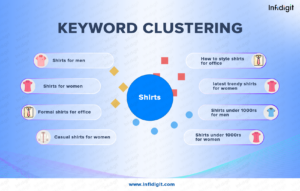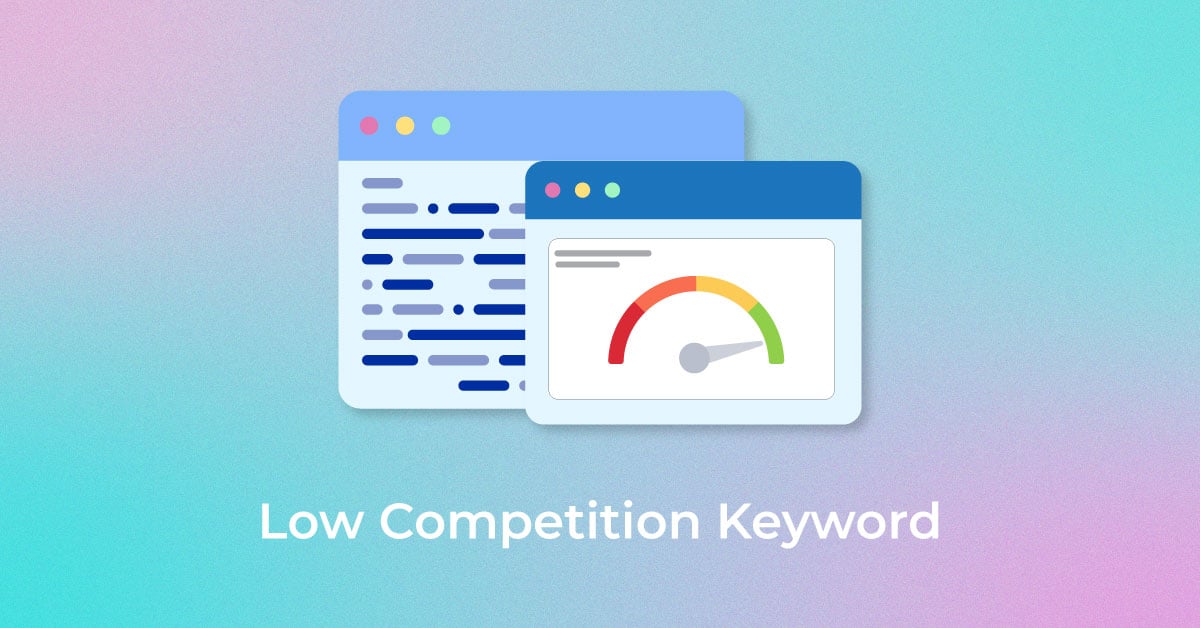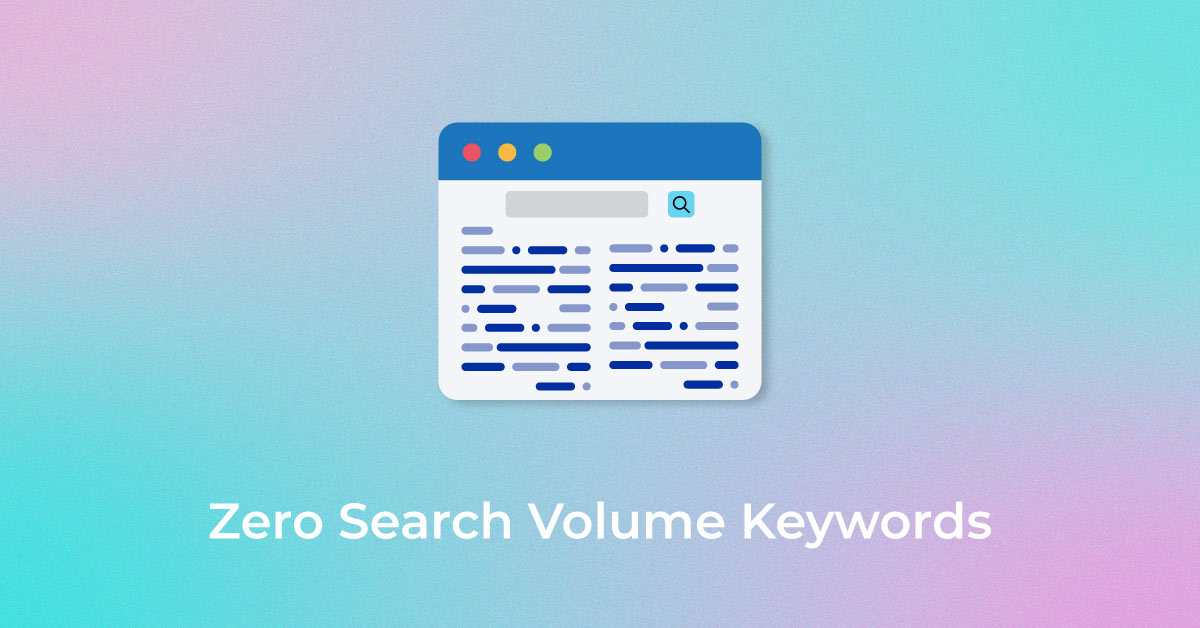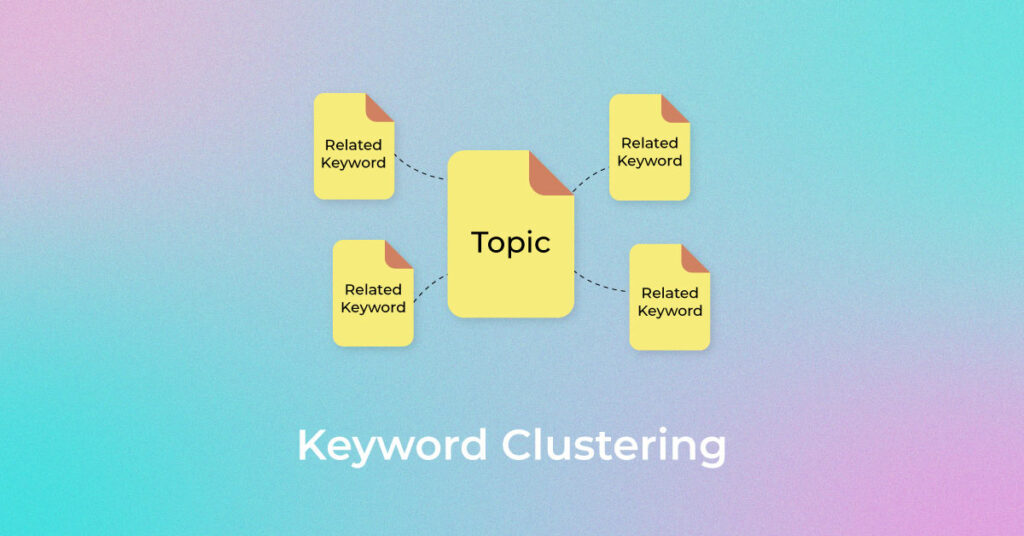Keywords are an integral part of any search engine optimization (SEO) strategy for businesses online. As keywords are one of the major ranking factors of Google, it would help businesses to know which keywords would grab the attention of search engines and ultimately improve their ranking on search engine result pages (SERPs).
Keyword clustering becomes a part of this journey. But what is it and how can it assist you in leveling up your SEO? Let us find out.
What Are Keyword Clusters?

Keyword clustering is the process of grouping related keywords with similar search intent to optimize a single piece of content. These clusters are collections of keywords that share similar intent, helping search engines connect the dots and understand the complete context of your website.
For example, terms like “SEO strategy” and “SEO content marketing strategy” reflect similar search intent. They can be grouped into one cluster and targeted on a page optimized around “SEO content strategy.” This page could then link to a broader pillar page like “SEO benefits,” which would have its own relevant keyword cluster.
By grouping keywords this way, you not only improve your site’s structure and topical relevance but also enhance your ability to rank for multiple terms within a single page, making your SEO strategy more efficient and powerful.
Why is keyword clustering important?
Keyword clustering plays a vital role in strengthening your overall SEO strategy. By organizing keywords with similar intent into structured groups, you can create more targeted, relevant, and authoritative content that resonates with both users and search engines. Here are some of its key benefits:
- Increases search traffic by targeting multiple keywords on a single page
- Builds topical and domain authority by covering related subjects in depth
- Improves site structure by grouping content around relevant themes
- Enhances crawlability with stronger internal linking and logical navigation
- Boosts SERP rankings by aligning better with user intent and search algorithms
This approach not only improves visibility across more queries but also makes your content more valuable to both users and search engines.
How to Use Keyword Clustering in SEO?
Keyword clustering is nothing but the process of analyzing a long list of keywords and identifying the main topics they represent. In the next step, these keywords are organized into categories or clusters. Businesses can perform clustering manually or with the help of software tools. These tools use algorithms to understand keyword patterns and relationships.
After clustering keywords, SEO specialists can use them to optimize website content and improve search engine rankings. Content creation can focus on a cluster of related keywords. It can cover a wide range of topics and user queries.
Additionally, keyword clustering can be used to study the gaps in content and identify opportunities for content creation. The analysis allows marketers to know which areas have low competition but a high search volume. As a result, they can generate content to fill in the gaps.
To summarize, keyword clustering is used to understand user intent. It helps to optimize search engine content and identify opportunities to create new content.
How Search Engines Interpret Keyword Clusters?
Search engines love structured websites because it is easier to crawl them. You must focus on maintaining a keyword cluster structure to grow your website in a structured and SEO-friendly manner.
Keyword clustering in SEO is beneficial. It allows search engines to establish a connection between pages. They can detect semantic relationships between different content pieces. Your site also gains the visitors’ interest and respect. Thus, search engines appreciate your authority on relevant topics.
Generating content clusters based on related keywords makes it easier for search engines to identify the search intent and index new pages faster. Search engines can also find related content and add internal links.
Search engines are positive toward keyword clustering. The process matches how they read and understand your site content. Your site architecture improves with keyword clusters. This, in turn, helps you boost your search engine visibility.
What about multiple keywords?
Earlier, SEO strategies focused on incorporating two to three keywords per content piece. But, as algorithms changed, the focus shifted from keywords to user intent. Keyword clustering groups related keywords together, which helps in naturally creating content that targets the intent.
Users are searching for information online for various reasons. While clustering keywords, you can use many keywords to improve the accuracy of the clustering. Multiple keywords and clusters of topics can capture more nuances in the data.
There are many ways to use keywords in clustering. “Term weighting” is a common approach. It focuses on assigning a weight to each keyword based on its importance. Another method is to use different clustering algorithms, each dependent on a different set of keywords.
When using keywords in a content piece, ensuring they are closely related is vital. For instance:
- Blueberry cheesecake recipe
- Blueberry cheesecake ingredients
- Blueberry cheesecake instructions
- Blueberry cheesecake cooking tips
- Blueberry cheesecake preparation
If you can stitch similar keywords in every content piece, you can rank for many related keywords.
Creating Topic and Keyword Clusters
1. Create Keyword List
The process of keyword clustering starts with intensive keyword research. You must start off by finding all the primary keywords you want your website to rank for. After you have a collection of primary keywords, for each primary keyword, you should find variations that users search for. These can be topical, related, long-tail keywords, queries, subtopics, and phrases.
As you collect hundreds of keywords, you have begun the keyword clustering process. Make sure that the search intent of the keywords under each group is similar. You should only include keywords in your cluster that will bring in the right type of organic traffic to your website.
2. Group Your Keywords
Once you have collected the required keywords, you will start seeing which ones relate to the others. You might see the same words within long-tail phrases, synonyms, intent, subtopics, and so on. These patterns will help you recognize which keywords can be clustered together into keyword groups.
If you choose to use one keyword group for a page and it has keywords that are unrelated to each other, it will confuse search engine bots trying to determine your page’s intent. Hence, each keyword group should have a collection of keywords with similar search intent, and semantic relevance.
3. Create and Optimize Pillar Pages
Once you have created keyword groups, they will provide you with a clear vision of how to put them into use for individual pages on your website. Keyword clusters will generally represent a core topic or the main subject for your Web pages. These pages are called pillar pages.
Creating landing and pillar pages is how you can properly start using the keyword clusters. Each pillar page on your website should implement one or more of your keyword groups, and enhance it with the best practices for on-page SEO. Using content optimization tools and internal linking, you can optimize your pillar pages and reap the rewards of keyword clusters more efficiently.
4. Support Clusters with Relevant Blog Content
As you build your pillar pages, you also need to improve the content and domain authority. To do this, you can build a blog that reinforces and highlights the keyword clusters on your website to the search engine algorithms. As you keep developing more and more blogs, they will start forming “topic clusters”, which can further help your website rankings.
Topic Clusters vs Keyword Clusters: What’s the Difference?
Understanding the difference between topic clusters and keyword clusters is key to building a strong SEO content strategy. While both help improve search visibility and site structure, they serve different purposes.
Topic Clusters
- Focus on a broader subject and cover it through interlinked content.
- Consists of a pillar page (main topic) and cluster pages (subtopics).
- Improve site structure and user navigation.
- Help search engines understand the depth of your content.
- Enhance internal linking, which can boost rankings and engagement.
- Build topical authority over time.
Keyword Clusters
- Group related keywords that share the same or similar search intent.
- Allow you to target multiple keywords in one well-optimized page.
- Help avoid keyword cannibalization across different pages.
- Improve chances of ranking for various terms in one go.
- Often used during content planning and optimization.
- Work well with topic clusters to strengthen on-page SEO.
By combining both strategies, you create content that’s not only optimized for multiple search terms but also organized in a way that supports your overall SEO structure and user experience.
Is Keyword Clustering Really Worth it?
Google’s indexing and Natural Language Processing (NLP) are responsible for determining which websites should rank high on SERPs. Google does the arduous task of understanding millions of different keywords and identifying the search intent of the users.
Keyword clustering is an advanced process in SEO, which can be very effective if implemented properly. It can help Google properly understand your content and its intent along with determining its authority. So, yes, keyword clustering is a worthwhile process for websites.
Start Creating Your Keyword Clusters
Time to start off planning out how to collect all the relevant keywords in your domain to create your own keyword clusters. Collecting keywords and mapping out groups and subgroups can be a very tedious task. Having SEO professionals with knowledge and experience on your side can be immensely helpful. Infidigit is an SEO company that provides professional SEO keyword clustering services. Contact us today to learn more about how we can help you with creating your own keyword clusters and optimize them.
FAQs on Keyword Clustering
What is the best way to group keywords?
The best way to group keywords is by clustering them based on search intent and topic similarity. Start by identifying your core topic, then group related long-tail keywords that answer similar user queries or serve the same purpose.
Is keyword clustering good for SEO?
Yes, keyword clustering is highly effective for SEO. It helps create focused, comprehensive content that ranks for multiple related terms, improves topical authority, and enhances user experience by addressing a range of related queries in one place.
How many keywords should be in one cluster?
A typical keyword cluster can include 3 to 10 closely related keywords. The key is relevance—each keyword in the cluster should support the same search intent and naturally fit into your content.
What’s the difference between semantic and SERP-based clustering?
Semantic clustering groups keywords by meaning and topic relevance, while SERP-based clustering focuses on keywords that show similar results in search engines. The former is based on language; the latter is based on actual rankings.
Popular Searches
How useful was this post?
0 / 5. 0

















